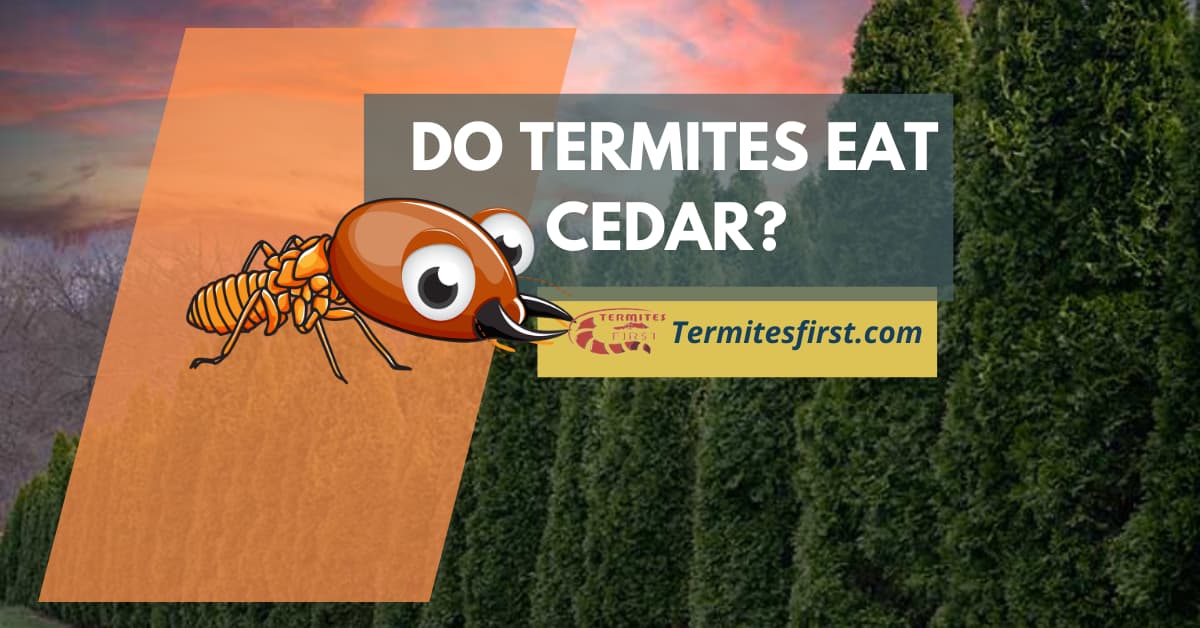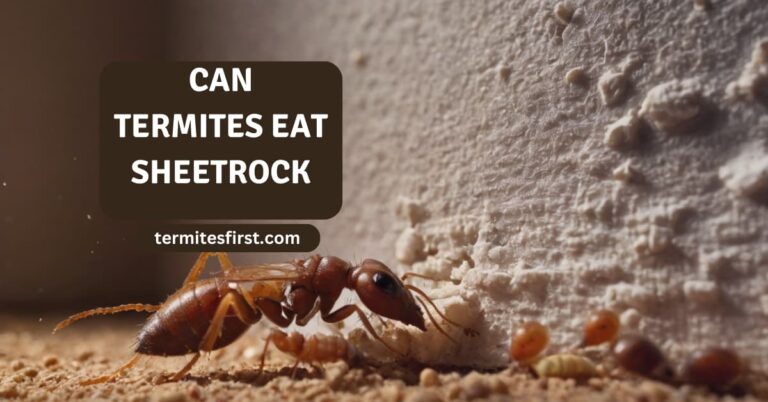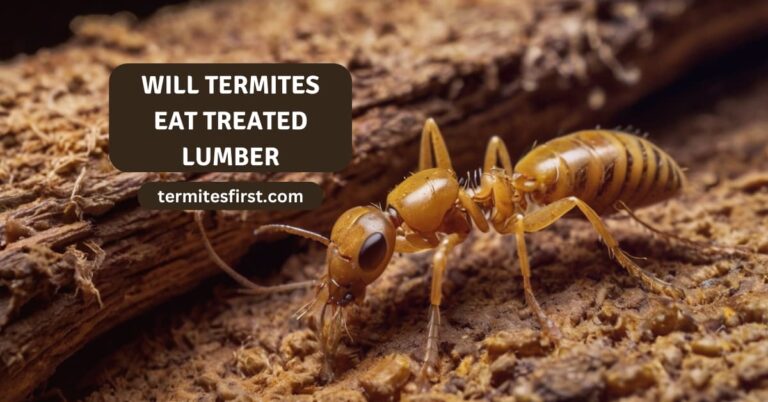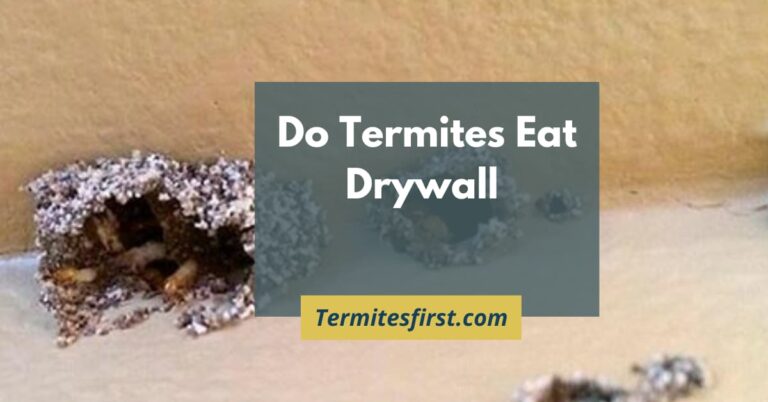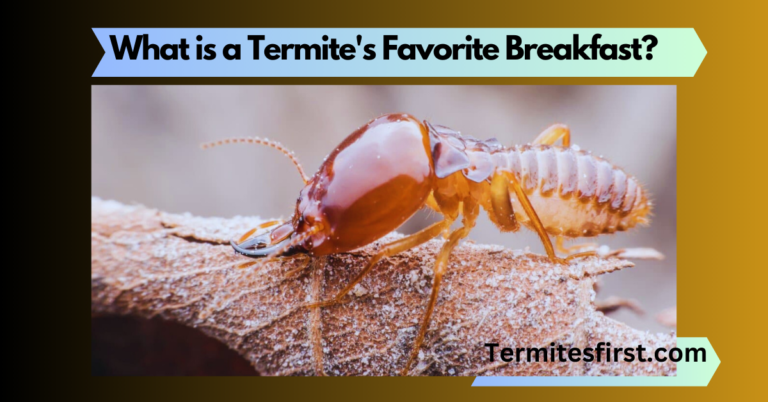Do Termites Eat Cedar? My Experience
Did you know that termites infest wood, causing over $5 billion in damage to homes and wood structures each year, especially in susceptible woods where wood contacts are prevalent? It’s shocking how these tiny pests can wreak havoc. I often wonder if cedar wood is safe from their appetite, considering the termite risk from invading termites and if it can be part of termite proof landscaping with timber. Many people think cedar, a wood type, is resistant to termites due to its timber wood structure, but the truth is a bit more complex with composite wood.
Cedar wood has some natural resistance to termites, but it isn’t entirely immune to their damage. Compared to composite wood, cedar may not be the best choice for termite-proof landscaping or as part of an effective termite control strategy. Knowing whether termites target cedar or composite wood is crucial for protecting your home and avoiding expensive repairs. This article will examine how termites interact with cedar timber and provide valuable information to help safeguard your property.
Key Takeaways
- Cedar, a type of timber, has natural oils that make it resistant to termites, making it a good choice for outdoor projects compared to composite wood.
- Compared to other woods, cedar offers better protection against termite damage, which can save you money in repairs.
- Termites typically prefer softer woods like pine and fir, so choosing harder woods or cedar structures can help reduce the risk of infestations, along with using cedar mulch.
- Consider using alternative materials such as composite decking, treated lumber, or cedar wood for areas prone to termite activity, along with cedar mulch and cedar structures.
- Other naturally resistant wood types include redwood and cypress, as well as cedar mulch, which can also be effective in preventing termite damage.
- To further protect your structures, explore non-attracting wood options and cedar mulch while maintaining proper landscaping to keep termites at bay.
Cedar’s Natural Termite Resistance

Natural Oils
Cedarwood contains natural oils and resins. These substances repel termites effectively. They create an environment with cedar mulch that is less appealing to these pests, using cedar wood. I have noticed this when using cedar in my own garden. The wood, including cedar mulch, remains intact while other materials show signs of damage.
Termites thrive in damp conditions. Cedar’s low moisture content helps reduce their survivability. This natural resistance makes cedar a popular choice for outdoor projects.
Cedar Mulch
Using cedar mulch in landscaping offers additional protection. It creates a barrier of cedar wood that deters termites from entering homes. The scent of cedar also acts as a repellent. I often use cedar wood around my plants to keep pests away while enhancing the garden’s appearance.
Cedar mulch breaks down slowly, providing long-term benefits. It enriches the soil while preventing weed growth. Homeowners can enjoy both beauty and protection with this cedar wood option.
Construction Benefits
Cedar is a favored material in construction due to its durability. Builders often choose it for decks, fences, and siding. Its natural resistance to termite damage ensures longevity. I appreciate how cedar structures maintain their integrity over time.
This wood requires less maintenance compared to other materials. Homeowners save money on repairs and replacements. The initial investment pays off in the long run.
Low Termite Survivability
Cedar’s properties lead to low termite survivability rates. Studies show that termites struggle to infest cedar wood. This fact supports its use in various applications, especially in areas prone to termite activity, such as cedar wood.
Choosing cedar for home building or landscaping can be a smart move. It reduces the risk of costly cedar wood pest control measures later on.
How Cedar Compares to Other Woods
Termite Resistance
Cedar wood stands out among common woods for its natural resistance to termites. Many types of wood, like spruce and softwoods, attract these pests. In contrast, the oils in cedar create a barrier that deters termites. This makes cedar a preferred choice for building structures where pest infestation is a concern.
I have seen many homes using cedar siding because it holds up well against insects. Homeowners appreciate this benefit as cedar wood reduces maintenance costs over time.
Pressure-Treated Wood
Pressure-treated wood offers added protection against termite infestations. This process involves treating wood with chemicals that make it less appealing to pests. While cedar has natural defenses, pressure-treated options can enhance protection further.
To enhance durability and longevity, builders often choose a mix of cedar and pressure-treated wood. This combination of cedar wood offers homeowners reassurance when it comes to pest concerns.
Cost-Effectiveness
When considering cost-effectiveness, cedar presents a strong case. Although it may be more expensive upfront than other woods, its longevity often offsets initial costs. Cedar wood structures can last decades without significant deterioration or damage from termites.
In contrast, cheaper woods may require more frequent replacements due to pest damage. This can lead to higher long-term expenses. I often advise clients to invest in cedar when they want a balance between quality and durability.
Comparison with Other Woods
Cedar’s heartwood contains natural oils that resist decay and insect damage. Compared to grade lumber like pine or fir, cedar performs significantly better against termites. Pine tends to attract pests more easily due to its softer texture and lower density.
Untreated wood siding is especially vulnerable to termite attacks. Cedar’s unique properties make it less likely to suffer from such infestations over time.
Summary of Benefits
- Natural resistance to termites.
- Enhanced protection with pressure-treated options.
- Long-lasting durability saves costs in the long run.
Choosing the right wood can make a significant difference in maintaining your home’s integrity. Cedar is often the best choice for those looking to avoid termite issues while ensuring aesthetic appeal.
Woods Termites Prefer
Softwoods
Softwoods are particularly appealing to termites. Species like pine, fir, and spruce attract these pests due to their softer structure. The cellulose content in softwoods is higher than in many hardwoods.
This cellulose serves as a food source for termites. I have seen how quickly termites can damage untreated softwood structures. They tunnel through the wood, causing significant termite damage in a short time. Homeowners should be aware of this risk when choosing materials for construction
Untreated Lumber
Untreated lumber poses a major risk for termite infestations. Without chemical treatment, wood remains vulnerable to invading termites. These pests can easily access and consume untreated wood.
I often advise friends to consider termite control services if they use untreated lumber in their projects. The cost of prevention is much less than repairing termite damage later on.
Cellulose Content
The cellulose content in certain woods makes them attractive to termite colonies. Termites thrive on cellulose, which is abundant in many types of wood. The more cellulose present, the greater the chance of a termite problem.
For example, oak and maple also contain high levels of cellulose. While cedar has some resistance, it still contains enough cellulose to attract termites under certain conditions.
Environmental Factors
Environmental factors contribute significantly to termite activity. Moisture-rich areas create ideal conditions for termite infestations. Termites prefer warm and humid environments, which can increase their risk in specific wood types.
In my experience, homes near water sources or with poor drainage are at higher risk for termite attacks. I recommend regular inspections, especially in these areas, to catch any potential issues early.
Commonly Infested Woods
Certain types of wood are more susceptible to termite damage than others. Below is a list of popular woods that termites often attack:
- Pine
- Fir
- Spruce
- Oak
- Maple
These woods provide ample food sources for termites due to their cellulose content. Homeowners should take precautions when using these materials in construction or landscaping.
Alternative Materials to Consider
Concrete Options
Concrete stands out as a durable alternative to wood. It does not attract termites. Many construction projects now use concrete for foundations and walls. I have noticed that using concrete can significantly reduce the chances of termite infestations in homes.
Concrete slabs provide a solid base. They are less vulnerable to moisture, which attracts termites. Concrete structures require minimal maintenance. This makes them a smart choice for long-term investments.
Metal Choices
Metal is another excellent option for construction. Steel and aluminum resist termite damage effectively. These materials are often used in roofing and framing. They offer strength and durability without the risk of pest damage.
I have seen metal siding become popular in many homes. It provides aesthetic appeal while keeping termites at bay. Using metal also contributes to energy efficiency, as it reflects heat away from the building.
Pressure-Treated Wood
Using pressure-treated wood is crucial for outdoor structures. This wood undergoes a treatment process that makes it resistant to pests. Decks, fences, and outdoor furniture benefit from this protection.
I always recommend checking if the wood is rated for ground contact. This rating indicates how well it can resist termites and decay. Choosing pressure-treated wood can save homeowners from costly repairs down the line.
Landscaping Barriers
Incorporating barriers in landscaping is essential for termite prevention. Physical barriers made of steel mesh or sand can deter termites from entering structures. These barriers create a physical obstacle that pests cannot easily cross.
Applying chemical treatments around the foundation can provide extra protection. Regular inspections help identify any signs of termite activity early on. I believe these preventive measures are vital for maintaining a pest-free environment.
Importance of Prevention
Understanding what materials to use is key in preventing termite damage. Homeowners must consider alternatives to traditional wood products when building or renovating. By choosing concrete, metal, or treated wood, they can significantly lower their risk of infestations.
Investing in prevention pays off in the long run. The cost of repairs after a termite infestation can be overwhelming. Taking proactive steps helps protect both property value and peace of mind.
Naturally Resistant Wood Types
Redwood Benefits
Redwood is another naturally resistant wood. It contains tannins that help repel insects. This makes it a popular choice for outdoor projects. I have seen redwood used in decks and fences. Its resistance to rot also extends the lifespan of these structures.
The rich color of redwood adds beauty to any space. Many homeowners appreciate its aesthetic appeal. It requires less maintenance compared to other woods. This can save time and money in the long run.
Teak Advantages
Teak is highly regarded for its durability. It has natural oils that protect it from moisture and pests. I admire how teak maintains its quality even in harsh weather conditions. This wood type is often used for furniture and boat building.
Using teak can provide a long-lasting solution for outdoor furniture. Its resistance to water damage means less chance of decay. This durability leads to fewer replacements over time, making it a wise investment.
Ecological Benefits
Using naturally resistant woods like cedar, redwood, and teak supports sustainable building practices. These wood types require fewer chemicals for treatment. This reduces environmental impact significantly.
Sustainable forestry practices ensure that these trees are harvested responsibly. By choosing these wood sources, we promote healthier forests. I believe this approach benefits both builders and the planet.
Naturally resistant woods also contribute to biodiversity. They provide habitats for various species when harvested sustainably. This promotes a balanced ecosystem, which is essential for our environment.
Durability and Pest Control
The durability of naturally resistant woods plays a key role in pest control solutions. Cedar, redwood, and teak resist termites and other pests effectively. Their natural properties mean they do not need chemical treatments.
This durability saves homeowners from frequent repairs or replacements. I have noticed that structures made from these woods last longer without significant damage. This longevity provides peace of mind against pest infestations.
Using resistant woods can lead to lower overall costs. Homeowners save on pest control measures since these woods deter insects naturally. Investing in such materials proves beneficial in the long term.
Effective Building Materials
Material Characteristics
Effective building materials resist termite damage through specific characteristics. Density plays a crucial role. Denser materials are harder for termites to penetrate. For instance, hardwoods like oak and maple tend to be more resistant compared to softwoods.
Chemical treatments also enhance resistance. Many commercial lumber products undergo pressure treatment with preservatives. These chemicals deter termites and other pests. I learned that using treated wood can significantly reduce the risk of infestation in my own home projects.
Importance of Selection
Selecting appropriate materials during home construction is vital. Homeowners should prioritize materials known for their resistance to termites. Using naturally resistant wood types is a good start. However, it’s not the only factor to consider.
Composite lumber products can also be effective. They combine various materials, making them less appealing to termites. Proper selection minimizes future termite risks and helps protect your investment over time.
Maintenance and Inspections
Regular maintenance and inspections are essential for preserving building materials against termites. Homeowners should routinely check for signs of damage or infestation. This includes monitoring for mud tubes and discarded wings.
I find it helpful to schedule annual inspections with professionals. They can identify potential issues early on. This proactive approach saves money and prevents extensive damage later.
Maintaining the integrity of building materials requires vigilance. Keeping gutters clean and ensuring proper drainage reduces moisture around the foundation. Moisture attracts termites, so controlling it is key.
Non-Attracting Wood Options
Fragrant Wood
Certain types of fragrant wood are known to deter termites. Woods like cedar and redwood contain natural oils that make them less appealing to these pests. These oils not only give the wood a pleasant aroma but also act as a barrier against termite attraction. I often choose cedar for outdoor furniture because it lasts longer and smells great.
Using fragrant wood in construction can be a smart choice. It provides beauty and durability while reducing the risk of termite damage. Homeowners should consider these options when selecting materials for their projects.
Wood Mulch
Wood mulch is common in landscaping, but not all types are equal when it comes to termites. Untreated wood mulch can attract termites, especially if it is made from softwoods. On the other hand, using hardwood mulch can help minimize this risk. Hardwoods are denser and contain fewer sugars, making them less appealing.
I’ve found that using hardwood mulch around my garden beds has helped keep pests away. It adds nutrients to the soil without inviting unwanted guests. Homeowners should think about using hardwood mulch instead of untreated options to protect their homes.
Barrier Methods
Creating barriers is another effective way to prevent termite intrusion. Physical barriers, like metal mesh or sand, can stop termites from reaching wooden structures. Applying chemical treatments can enhance resistance to termite attraction and damage.
I remember when I treated my deck with a protective sealant. It not only improved its appearance but also added an extra layer of defense against pests. Homeowners should explore various treatment options available on the market today.
Considerations for Renovations
When planning renovations or new builds, selecting non-attracting wood options is crucial. Using materials that resist termites can save homeowners from costly repairs in the future. This proactive approach helps ensure long-term protection against pest issues.
Incorporating fragrant woods or hardwoods into designs makes sense for both aesthetics and durability. By being mindful of wood choices, homeowners create a safer environment for their properties.
Conclusion:-
I’ve explored whether termites eat cedar and found that cedar’s natural resistance makes it a solid choice for construction. Compared to other woods, it stands out, but knowing what termites prefer can help in making informed decisions. I also highlighted alternative materials and naturally resistant wood types that can enhance your defenses against these pests.
Understanding the strengths of cedar and its alternatives is key to protecting your property. If you’re building or renovating, consider these insights to choose wisely. Stay proactive about pest management and keep your space safe. Let’s keep those pesky termites at bay!
FAQ’s:-
No, termites generally avoid cedar wood due to its natural oils and chemical compounds that deter them. This makes cedar a popular choice for outdoor projects.
Cedar is more resistant to termites than many common woods like pine or oak. Its natural properties help protect it from infestations, making it a smart choice for building materials.
Termites are attracted to softwoods such as pine, fir, and spruce. They also favor decayed or damaged wood, as it is easier to digest.
Yes, alternatives include composite materials, metal, and concrete. These options are less appealing to termites and can provide long-lasting durability.
In addition to cedar, other naturally resistant woods include redwood, cypress, and teak. These woods contain natural oils that repel termites effectively.
Materials like treated lumber, steel, and concrete are highly effective against termites. They offer enhanced protection and longevity for structures.
Non-attracting options include bamboo and thermally modified wood. These materials have reduced susceptibility to termite damage while maintaining structural integrity.

